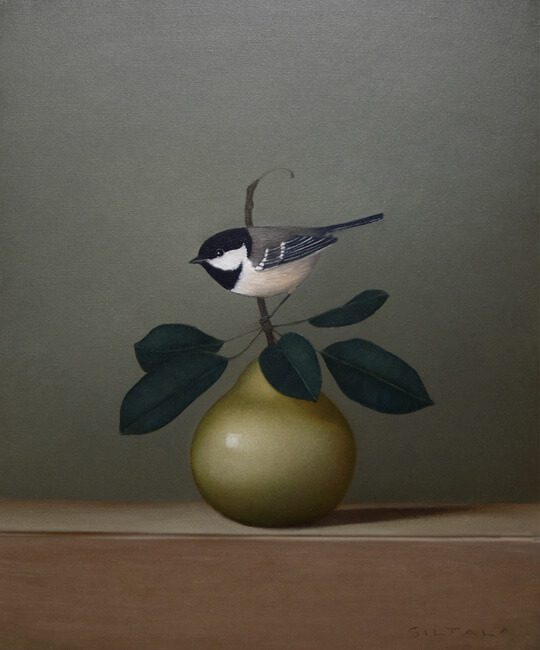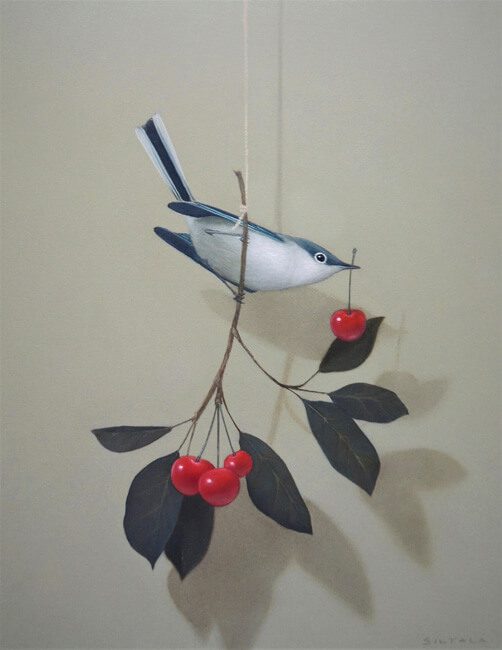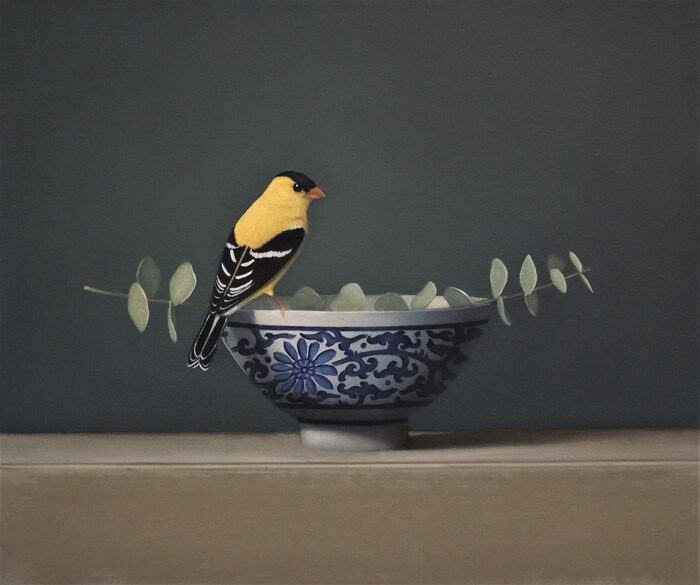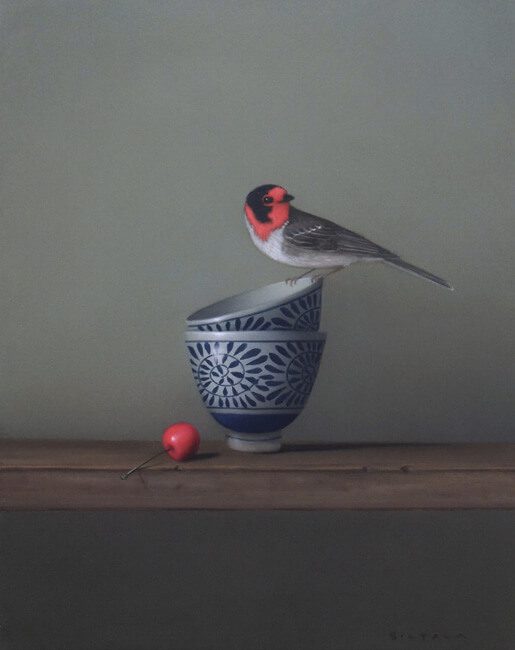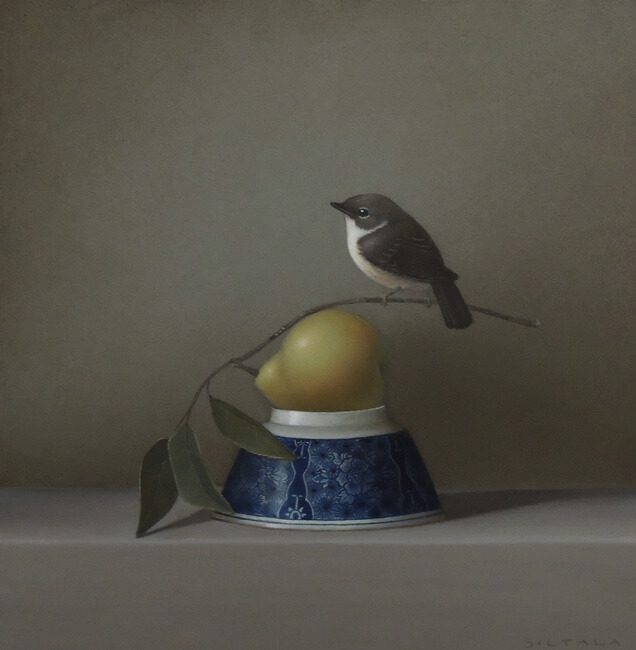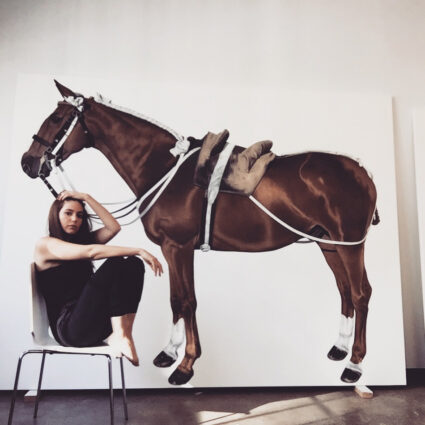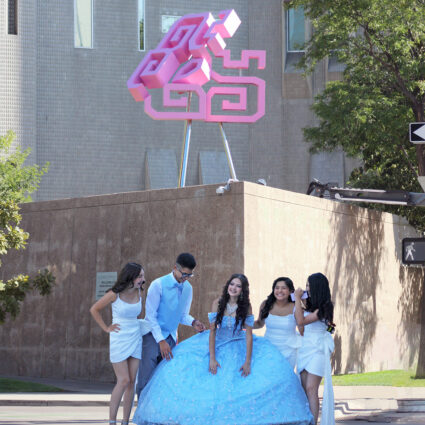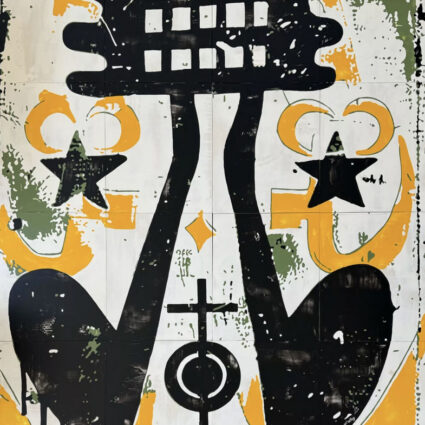Artist Sarah Siltala uses transitions between light and shadow and classical color and texture with contemporary composition to create flashes of awareness and instances of total presence.
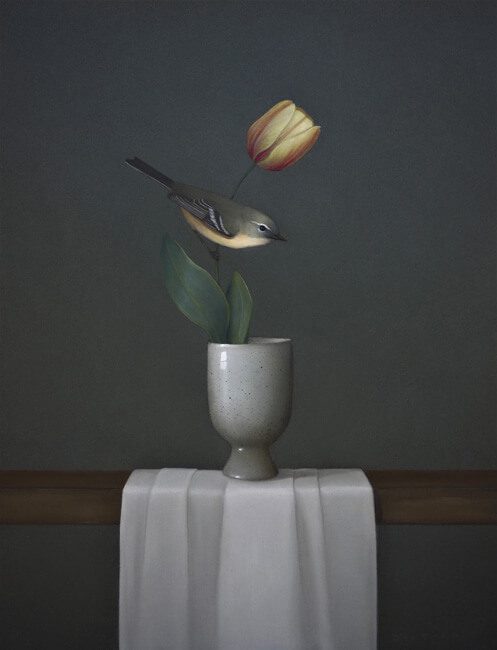
Albuquerque, NM | sarahsiltala.com | @sksiltala
What does “bird watching” conjure in your mind? Old-timers in wide-brimmed hats, binoculars pressed to their eyes? Even if your impressions are dull, you have to admit there’s a certain undeniable glory in this: glimpsing that one bird, in that place you will never visit again, in that singular moment. How you might be looking so diligently for something and then totally astounded when you finally find it.
Sarah Siltala’s paintings are a bit like that, as she herself describes them, like “a bird that alights only for a moment, and then is gone.” Indeed, many of her still lifes include birds—a bluebird perched on a brass-colored bowl, a black-capped chickadee lifting a crisp green leaf while it balances on the edge of a china cup. These paintings represent rare, quickly passing moments, distilled to their sweetest and given a longer lifespan.
Siltala works in the way of the old masters—think Rembrandt, Caravaggio, Vermeer—creating her own oil paints from dry pigments. Yet there are no anguished angels here or desperate humans driven out of Eden. Instead, Siltala accesses and illuminates the heaven that is right here on Earth. Through masterful transitions between light and shadow, and classical color and texture contrasted with contemporary composition, she creates the flashes of awareness that visit most of us infrequently—instances of total presence.
Though human representations don’t show up in Siltala’s paintings, there is a very human intimacy here, the evidence of a hand at work, offering a certain interiority that comes with contemplating the perfection of light spilling across a tabletop, or the last hints of red and blue before the sun completely vanishes beneath the horizon. In her work, Siltala is able to tap into an almost holy awareness of those quiet moments that quickly leave us behind.
Siltala is represented by Collins Galleries, Cape Cod; Lily Pad Gallery, Watch Hill, Rhode Island; and Sugarlift, New York.
